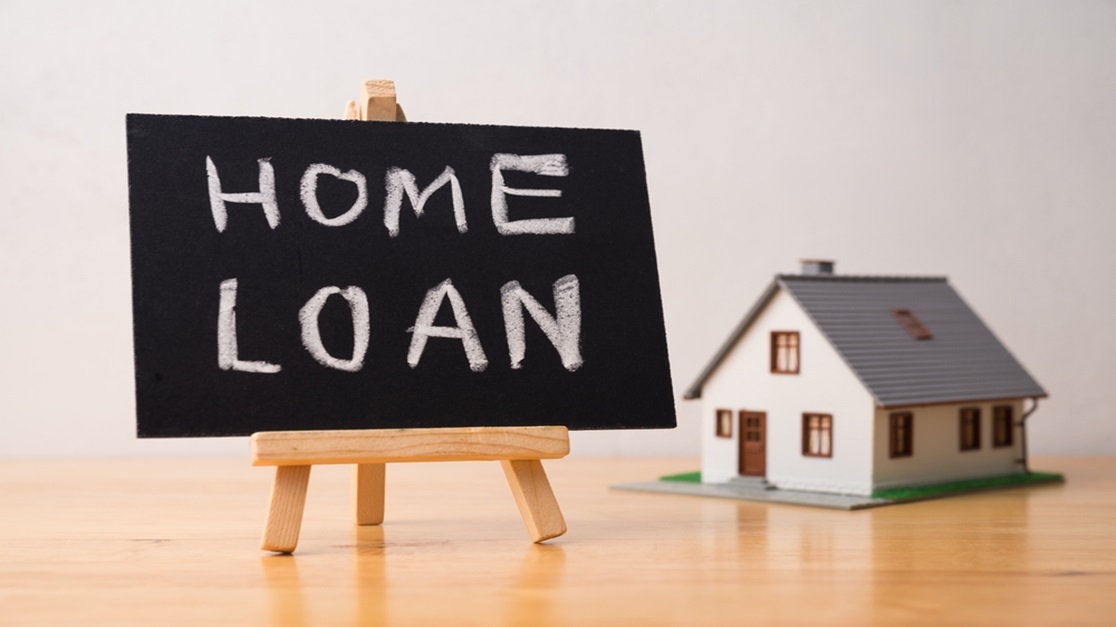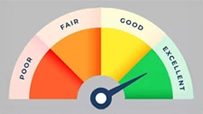How to Save for Down Payment on Your Home: A Complete Guide
September 01, 2025

Thanks to home loans, buying a house has never been simpler. However, there’s a catch. Banks in India generally finance up to 85% of a property's value, leaving you to cover the remaining as a down payment. For a property priced at ₹50 lakhs, this means you’ll need to shell out at least ₹7.5 lakhs upfront. This might sound daunting, but with the right approach and financial tools, it’s a challenge you can conquer. Saving for a down payment isn’t just about cutting expenses—it’s about smart planning and disciplined execution. From Fixed Deposits (FDs) to Recurring Deposits (RDs) and building an emergency fund, we’ll walk you through actionable strategies to bring your dream home within reach.
How Much Should You Pay as a Down Payment?
Typically, lenders in India require a down payment of 10% to 20% of the property's value. For instance, if the property costs ₹50 lakhs, your down payment could range from ₹5 to ₹10 lakhs. While it's tempting to pay the minimum, consider aiming for a higher amount to enjoy the following benefits:
- Lower Loan Amount: A higher down payment reduces the principal loan amount, leading to lower EMIs and interest.
- Favourable Interest Rates: Borrowers with higher equity in the property are often perceived as less risky, which may result in better interest rates.
- Reduced Loan Tenure: A smaller loan amount can help you repay the debt faster, saving you substantial interest over time.
While it's good to stretch your budget slightly for a larger down payment, ensure you maintain sufficient liquidity for other financial goals and emergencies.
Practical Tips to Save for a Down Payment
1. Set a Clear Goal
Calculate the exact amount you need to save based on the property’s price and your target down payment percentage. Having a clear goal can help you plan better and stay motivated.
2. Open a Recurring Deposit (RD)
Recurring Deposits are a disciplined way to save a fixed amount every month. With attractive interest rates and zero risk, RDs can help you accumulate funds steadily.
3. Leverage Fixed Deposits (FDs)
Fixed Deposits offer higher interest rates than savings accounts and can grow your savings faster. If you have a lump sum amount, investing it in an FD can yield guaranteed returns.
4. Create an Emergency Fund
Before channeling all your savings into a down payment, ensure you have an emergency fund that can cover 3 to 6 months of living expenses. This will act as a financial cushion in case of unexpected expenses.
5. Automate Your Savings
Set up automatic transfers to your RD or a separate savings account dedicated to your down payment. Automation reduces the temptation to spend and ensures consistent progress.
6. Cut Unnecessary Expenses
Track your monthly expenses and identify areas where you can cut back. Redirect these savings toward your down payment fund.
7. Invest Smartly
For long-term goals (3+ years), consider low-risk mutual funds or Public Provident Fund (PPF) to earn better returns compared to traditional savings options.
8. Consider a Side Hustle
Explore freelance work or part-time gigs to boost your income. Direct all additional earnings to your down payment fund.
Final Thoughts
Saving for a home down payment requires discipline, planning, and smart financial choices. By leveraging options like FDs, RDs, and emergency funds, you can achieve your goal without compromising financial stability. Remember, every small step brings you closer to your dream home.
Buying a house has never been this easy! Avail Ujjivan SFB’s wide range of affordable home loan products and enjoy a hassle-free loan journey. From house purchase loan to plot loans and home improvement loans, we have it all! Alternatively, you can browse through Ujjivan SFB product suite - our wide range of financial products are designed to make your financial life better.
Disclaimer:
The contents herein are only for informational purposes and generic in nature. The content does not amount to an offer, invitation or solicitation of any kind to buy or sell, and are not intended to create any legal rights or obligations. This information is subject to updation, completion, amendment and verification without notice. The contents herein are also subject to other product-specific terms and conditions, as well as any applicable third-party terms and conditions, for which Ujjivan Small Finance Bank assumes no responsibility or liability.
Nothing contained herein is intended to constitute financial, investment, legal, tax, or any other professional advice or opinion. Please obtain professional advice before making investment or any other decisions. Any investment decisions that may be made by the you shall be at your own sole discretion, independent analysis and evaluation of the risks involved. The use of any information set out in this document is entirely at the user’s own risk. Ujjivan Small Finance Bank Limited makes no representation or warranty, express or implied, as to the accuracy and completeness for any information herein. The Bank disclaims any and all liability for any loss or damage (direct, indirect, consequential, or otherwise) incurred by you due to use of or due to investment, product application decisions made by you on the basis of the contents herein. While the information is prepared in good faith from sources deemed reliable (including public sources), the Bank disclaims any liability with respect to accuracy of information or any error or omission or any loss or damage incurred by anyone in reliance on the contents herein, in any manner whatsoever.
To know more about Ujjivan Small Finance Bank Products Visit:"https://www.ujjivansfb.in"
All intellectual property rights, including copyrights, trademarks, and other proprietary rights, pertaining to the content and materials displayed herein, belong
to Ujjivan Small Finance Bank Limited or its licensors. Unauthorised use or misuse of any intellectual property, or other content displayed herein is strictly prohibited and the same is not intended for distribution to, or use by, any person in any jurisdiction where such distribution or use would (by reason of that person’s nationality, residence or otherwise) be contrary to law or registration or would subject Ujjivan Small Finance Bank Limited or its affiliates to any licensing or registration requirements.
FAQs
1. What is the minimum down payment required for a home loan in India?
Most lenders in India require a minimum down payment of 10% to 20% of the property’s value. This means if your property costs ₹50 lakhs, you’ll need to pay between ₹5 to ₹10 lakhs as a down payment. The final loan amount offered depends on your loan eligibility and is solely at the bank’s discretion.
2. How can Fixed Deposits help in saving for a down payment?
Fixed Deposits offer guaranteed returns with attractive interest rates. By parking a lump sum amount in an FD, you can grow your savings over time. Additionally, some banks allow you to take a loan against your FD in case of an emergency.
3. Is it better to save for a higher down payment?
Yes, saving for a higher down payment can reduce your loan amount, lower your monthly EMI, and fetch better interest rates. However, ensure that you don’t deplete your emergency savings while doing so.
4. What is the role of a Recurring Deposit in saving for a down payment?
A Recurring Deposit allows you to save a fixed amount monthly, earning interest on your contributions. This is ideal for those who prefer systematic savings over time.
5. Should I use my emergency fund for a down payment?
No, your emergency fund should be reserved for unforeseen expenses like medical emergencies or job loss. Depleting it for a down payment can leave you financially vulnerable.
6. How long does it take to save for a home down payment?
The time required depends on your savings rate, income, and property cost. On average, it can take 2 to 5 years of disciplined saving to accumulate a sufficient down payment.
7. Can I invest in mutual funds for a down payment?
Yes, if your goal is 3 or more years away, you can invest in low-risk mutual funds like debt funds. These offer better returns than traditional savings methods while maintaining low risk.
8. What happens if I don’t have the full down payment amount?
If you lack the full down payment amount, you can consider options like personal loans or liquidating investments. However, these should be last resorts due to higher interest costs.
9. How does automating savings help in achieving my goal?
Automation ensures consistency by transferring a fixed amount to your savings account or RD every month. This reduces the chances of overspending and keeps you on track.
10. Can a side hustle significantly contribute to my down payment savings?
Yes, a side hustle can provide additional income that can be directed entirely toward your down payment fund. Even small amounts add up over time, accelerating your progress.
Latest Blogs

Credit Score Not Improving? 5 Mistakes You Might Be Making
August 13, 2025
For most of us, a credit score feels like a silent judge sitting in the background of our financial lives.

Banking Jargon Decoded: 15 Key Terms You Should Know
May 13, 2025
Banking feels simple on the surface; deposit money, withdraw when needed, pay bills, or transfer funds.

The ₹10 Lakh Rule for Cash Deposit Explained
August 13, 2025
Every day, millions of Indians walk into their banks to deposit cash, sometimes a few thousand rupees, sometimes several lakhs.

Missed Income or Errors? Here’s How ITR-U Can Save You from Penalties
August 13, 2025
Less than three weeks remain before the September 15 deadline to update income tax returns.

This Current Account is Designed to Empower Your Business
June 16, 2025
In the fast-paced world of business, having the right bank account can be a game-changer.





